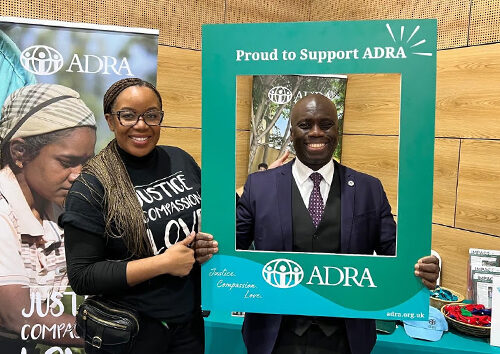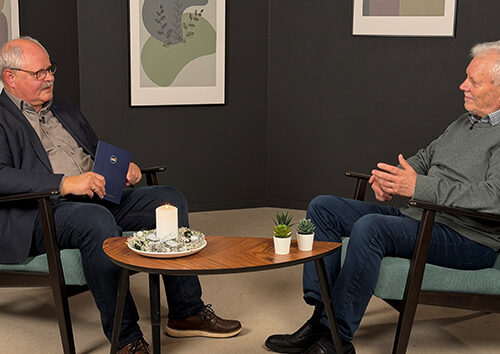12 December 2016 | Oxford, UK [Victor Hulbert / Natasha Mirilov] In a Europe that has increasingly become a global village, the South England Conference (SEC) organised its first Diversity Conference at Oxford Seventh-day Adventist church, Friday and Sabbath, 25-26 November 2016.
![Sophia Nicholls [left] leads Friday evening praise & worship](https://ted.adventist.org/sitenews/wp-content/uploads/2016/12/images_news-2_DSC00091.jpg)
Even the worship periods demonstrated diversity – both in the mix of singers and the varied choice of music. At one point a contemporary version of ‘What a Friend We Have in Jesus’ even included a cleverly constructed piano duet. Prayer time encouraged the church to write their prayers on their hands, and the whole day was ‘signed’ for the hearing impaired, recognising that diversity also includes those who often find themselves excluded from full participation in worship.
Friday night focused on history as retired pastor and Church administrator, Dr Reinder Bruinsma, led his attentive audience on a rapid journey through Church history from the diversity of the New Testament era, early Church history and the Protestant Reformation. He explained how this then grew into the myriad modern forms of Christianity, and even the diversity, theological, social and cultural, that is currently found within the Adventist Church.

Some areas of Adventist belief came together quite quickly. Others, such as an emphasis on health and the vegetarian diet took much longer and, in effect, even today, the principle of a holistic health message is only practised by a percentage of church members.
“Above all,” Bruinsma argued, “we must learn from history.” He stated that “diversity is not only inevitable, but necessary and positive in any living organism and therefore, also in the body of Christ. As we learn to live together and exchange points of views, we grow in our understanding of each other.”

By only concentrating on the dogmatic aspects of Christianity, an important part of what God is doing in our times, in us, through us and around us is being ignored. “When we see the world as us versus them, in and out we are on the side of the devil regardless of theology,” explained Duda.
How do we react to diversity and change? Snowflakes, in their unique complexity and simplicity were Duda’s ideal. “When God freezes water he makes snowflakes. When man freezes water he makes ice cubes.” He challenged, “Do you want God’s variety or man’s regimented uniformity?”

One subject in particular, demonstrated the complex nature of dealing with diversity. The final topic of the afternoon explored the sensitive topic of sexuality within the Church. Staying well within the World-Church guidelines on sexuality, Bruinsma’s brief included the need for Adventists to think through the issues surrounding the concept of homosexuality. How do you balance grace, scientific understanding of sexuality, and the principles outlined in Scripture? How do Adventists react not just to the LGBTQ community outside the church doors, but to those inside the church that struggle with their own sexual identity?

As the Church faces this as a real, but challenging issue, it is important to see how, biblically, we treat the ‘outcast’ and the ‘dispossessed’. “We have all kinds of people who have issues and we must be understanding,” said Bruinsma, challenging delegates that “We must give them proper care and make them feel welcome, make it a safe Church.”
This then led to a Q&A panel discussion, chaired by Pastor Jacques Venter. Attendees had the opportunity to ask questions from all the weekend seminars. Racial treatment at the workplace, issues with school and the Sabbath, and how society influences children on topics such as homosexuality, were among questions asked and debated. For some, that debate was a steep learning curve in trying to understand alternative mindsets.
The diversity weekend finished on a tasteful note. Dr Leonard and Monica Bowora, the Health Ministries team in Oxford, provided a short informal presentation on ‘Culture and Health’. This included an opportunity for some wholesome food sampling while learning cultural differences when it comes to what is on the plate.
 As a celebration of the conference, Tihomir and Kärt Lazic, from Newbold College, prepared a concert with their team, with a diverse range in music styles and engagement for the audience. Again, reminding attendees that, according to Sophia Nicholls, “diversity is about enrichment, about building the body of Christ and accepting that we are all different.” [tedNEWS]
As a celebration of the conference, Tihomir and Kärt Lazic, from Newbold College, prepared a concert with their team, with a diverse range in music styles and engagement for the audience. Again, reminding attendees that, according to Sophia Nicholls, “diversity is about enrichment, about building the body of Christ and accepting that we are all different.” [tedNEWS]
tedNEWS Staff: Victor Hulbert, director; Esti Pujic, editor
119 St Peter’s Street, St Albans, Herts, AL1 3EY, England
E-mail: [email protected]
Website: www.ted.adventist.org
tedNEWS is an information bulletin issued by the communication department of the Seventh-day Adventist Church in the Trans-European Division.
You are free to re-print any portion of the bulletin without need for special permission. However, we kindly request that you identify tedNEWS whenever you publish these materials.





